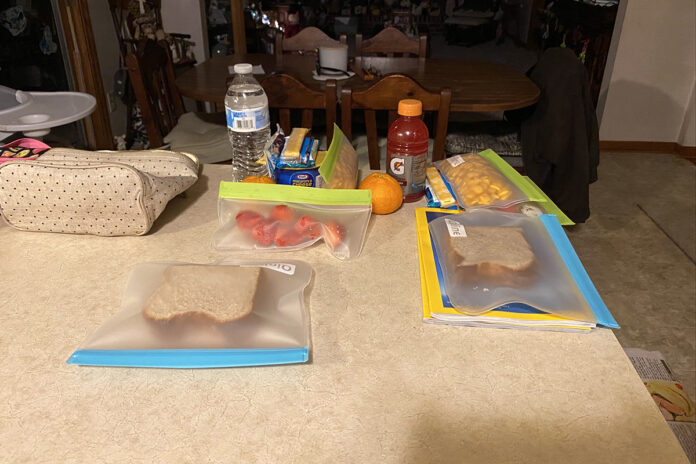
For the past few years in his Dairy Excel article, David Marrison has challenged readers to focus on one word instead of a laundry list of New Year’s resolutions. I wondered if focus words could be a helpful tool in developing personal consideration regarding natural resource conservation.
Since the general public has differing perspectives, sentiments and concerns about our natural world, finding a few inspiring words to meet these differences is challenging, but hopefully, readers will find a word below that resonates.
Awareness
Many of us have become so busy that we fly through our days without taking the time to remember that we are part of the natural world. With all the ways humans have learned to harness nature, we have still not learned how to live without it.
Perhaps becoming more aware of the natural resources on which you depend will gradually lead you to a more active role in natural resource conservation.
Gradualism
Education cannot be the end game in conservation. Knowledge alone will not protect future generations in their need for clean air, clean water and healthy soil. The goal for each of us should be to develop healthy conservation habits.
Changing behavior is challenging, but a gradual approach is often the most successful. For a farmer, a gradual approach might be to plant a cover crop on just a few acres for a couple of seasons to determine the merit.
For the rest of us, I’m sure we could find a habit or two that is needlessly wasting natural resources. Try picking one wasteful habit that you have and work on it.
Are you throwing away food on a weekly basis because you didn’t make time to prepare it? Are your showers longer than they need to be? Are you running washers and dishwashers with partial loads? Do you generate a lot of solid waste comprised of single-use packaging from a fast-food habit? Maybe a little forethought and self-reflection could improve our habits.
Forethought
About 20 years ago, I received a stainless-steel travel mug with the word “Forethought” printed on the cup. It was a gift for attending a seminar. I don’t remember much about that seminar, but the travel mug has become a daily habit.
Not much remains of the lettering that spelled out forethought, and even though I’m certain the intended message was not one of conservation, for me, the message was clear. Use this mug for coffee, period.
If you take the cleaned mug to an establishment, and they will not fill it, then don’t purchase their beverages. Better yet, fill the mug at home and save time, gas, and money. It only took a little forethought, a little conviction and one daily choice for this coffee addict to greatly reduce her solid waste.
When you think about it, what situation cannot be improved with a little forethought? Personally speaking, I can track most of my mistakes to skipping that step.
Choice
We make thousands of decisions or choices every day. Some are mindless choices executed by habit; others are laborious in our efforts to gather enough information to make the right choice. It’s a revered freedom, this freedom of choice.
If there is one thing Americans really dislike, it is someone trying to restrict our choices, our freedom. We especially resent government intervention. Yet, when it comes to natural resource conservation and environmental issues at large, we typically make passive choices. Or rather, we really do not make an actual choice — we abstain from all that headache and then ignore the consequences of our communal actions for as long as we can.
Instead of making the tough choices that we have the freedom to make, we allow a river to catch on fire and then complain when the government passes legislative protections such as the Clean Water Act.
We have so many opportunities every day to choose conservation over convenience. Government intervention will continue unless we habitually exercise our right to choose conservation. Let’s not be passive.
Unless
While the previous words are easily directed toward an action, the word unless is more like an open book of the collective potential of all the choices yet unmade. I have not found a better word to motivate me to action than the word “unless.”
Dr. Seuss had the ability to combine empathy, honor and wit, but to me, his greatest message was proclaimed by the Lorax when he said, “Unless someone like you cares a whole awful lot, nothing is going to get better. It’s not.”












